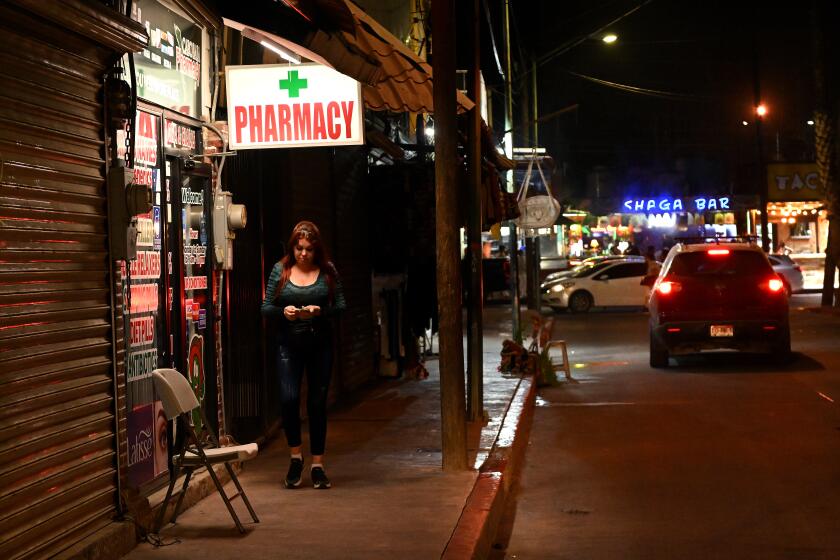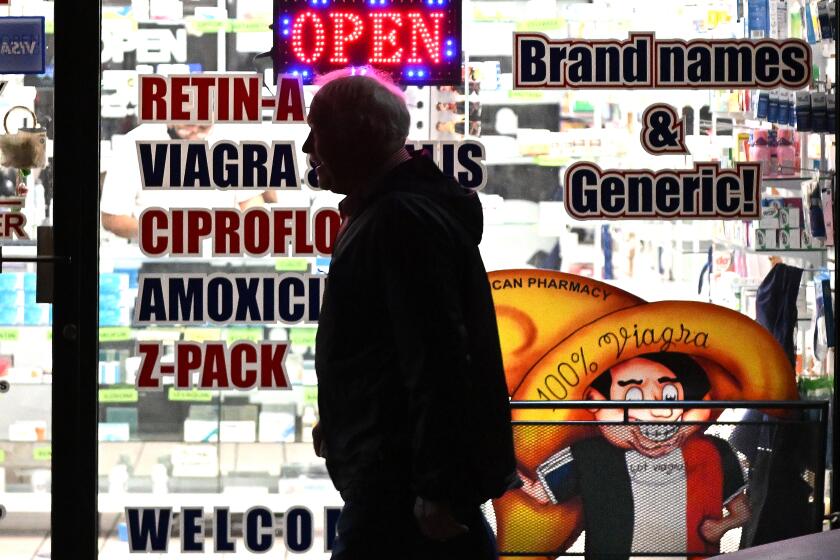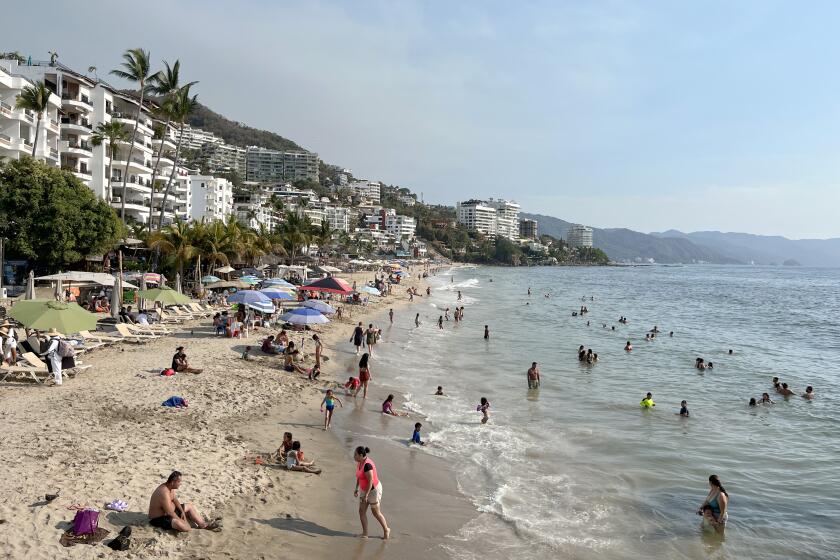Mexican authorities shutter pharmacies in Yucatán, citing threat of counterfeit pills
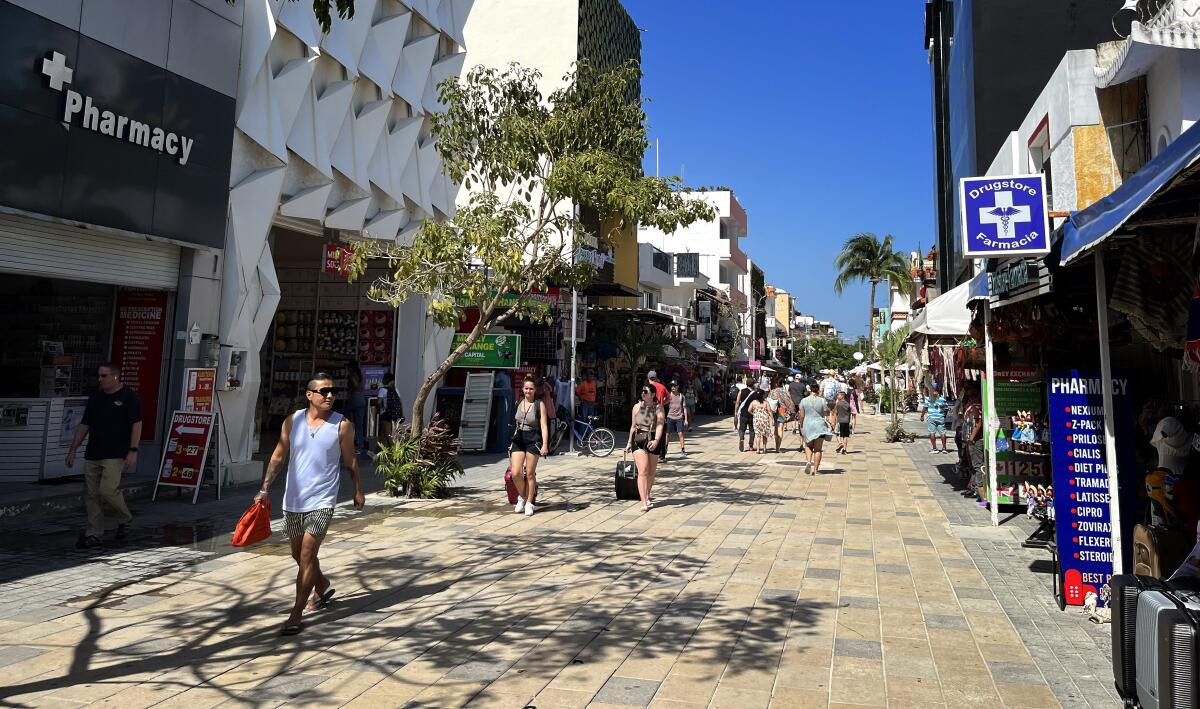
- Share via
Authorities in Mexico have shuttered pharmacies in the resort cities of Cancun, Tulum and Playa del Carmen after finding an array of irregularities at 23 of the 55 locations they visited, including serious concerns such as selling expired and potentially counterfeit medications.
The four-day series of raids, dubbed Operation Albatross by the Mexican government, comes months after a Los Angeles Times investigation revealed that drug stores in major tourist destinations across Mexico were selling counterfeit pills laced with fentanyl and methamphetamine.
It’s not clear whether anyone was charged criminally, but federal health officials in Mexico said in a statement Tuesday that authorities made 21 product seizures, netting a variety of drugs they plan to test for adulterants including fentanyl. The raids in the Yucatán Peninsula come weeks after a similar operation on the opposite side of the country led to four arrests and the confiscation of nearly 25,000 pills from pharmacies in Los Cabos.
Pharmacies in several Mexican cities are selling counterfeit prescription pills laced with fentanyl and meth and passing them off as legitimate pharmaceuticals.
Drugstores in Mexico have long sold a wide range of medications over the counter, including many that would require a prescription in the U.S. Until recently, drug market experts had generally believed pills sold in stores — unlike those sold on the street — were at least what store owners and packaging said they were.
Then in February, The Times published an investigation after testing pills from pharmacies reporters visited in Tijuana, San José del Cabo and Cabo San Lucas. In each city, some of the pills sold over the counter as either oxycodone or Adderall tested positive for fentanyl or methamphetamine. A UCLA research team recorded its findings around the same time.
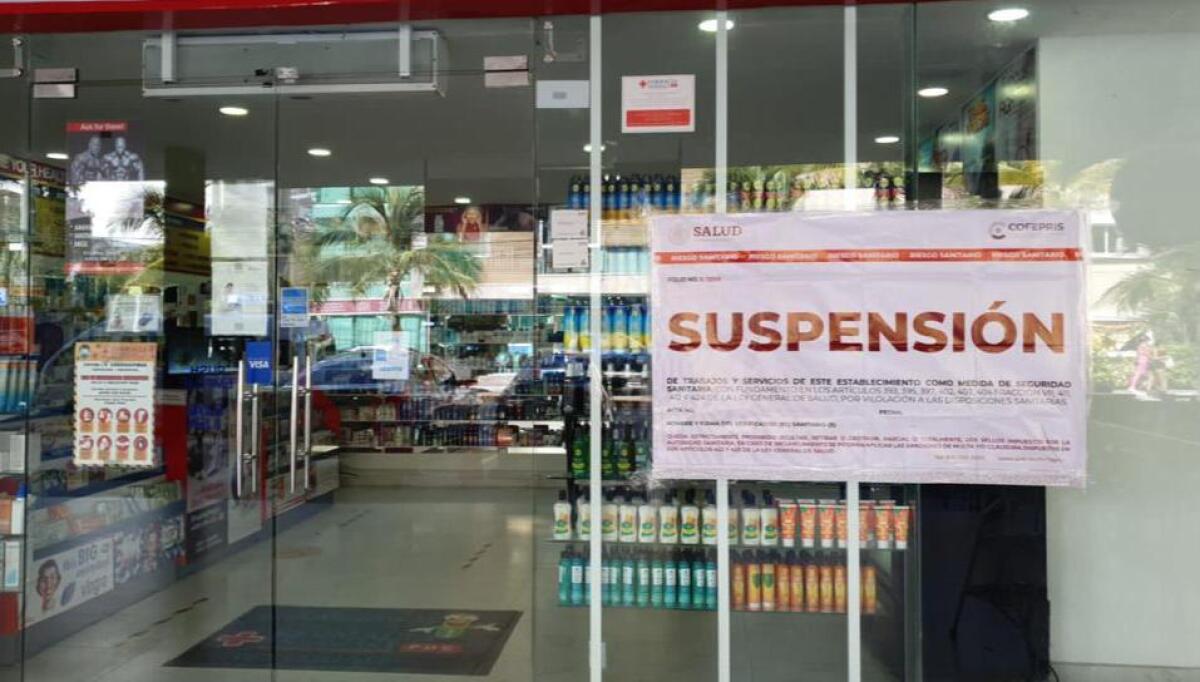
Over the next few weeks, reporters identified at least half a dozen people who had overdosed or died after taking pills they bought from pharmacies in Mexico. For years, grieving families had been alerting members of Congress and federal officials of the risk. But the U.S. State Department didn’t explicitly warn the public about the danger until March.
On June 14, The Times published a broader investigation documenting the problem across the country — including in Tulum and Playa del Carmen, two of the three cities authorities targeted in Operation Albatross. Of the 55 pills Times reporters purchased nationwide, more than 50% were fake. More than a third of the purported painkillers were actually fentanyl, and 80% of the Adderall samples contained either methamphetamine or, in one case, MDMA.
Mexico raided drugstores in Los Cabos after Times reporters found pharmacies in the country are selling fake pills containing fentanyl and methamphetamine.
At the time, a federal prosecutor in Mexico told reporters that officials were interested in The Times’ investigation and hoped to file a complaint for potential prosecution. Weeks later, a judge greenlit the raids on pharmacies in Cabo San Lucas and San José del Cabo, which netted a cache of money and boxes of pills.
For months, Chelsea Shover, a researcher at UCLA, has been calling for answers and action in response to the Times’ findings and similar results in four northwestern Mexico cities that she and a team of other researchers documented earlier this year.
“Stopping the sale of counterfeit pills in individual pharmacies is an important step, and it’s good to see that happening,” she said. “It’s also important that governments continue to warn travelers and locals about this issue because there’s still probably lots of other pharmacies where this is happening.”
The recent raids in Quintana Roo came “in response to various citizen complaints,” authorities said in the Tuesday statement, adding that millions of tourists visit the area each year. Some pharmacies were so intent on targeting tourists that they would only sell the irregular pills to foreigners, according to the statement Mexican health officials issued in conjunction with the country’s navy, which aided in the operation.
When Times reporters visited Mexico earlier this year, they found that many pharmacies selling counterfeit pills were in bustling tourist districts and hotel zones. Store clerks often spoke to customers in English and offered prices in American dollars.
New testing by Times reporters has revealed that some pharmacies in cities across Mexico sell counterfeit medication tainted with fentanyl and methamphetamine.
In Tuesday’s statement, health officials also said some of the pharmacies targeted in the raids offered advertising cards that included their addresses and phone numbers. They raised concerns about whether the pharmacies sold prohibited drugs and medications without required prescriptions. Over the course of five trips to Mexico this year, reporters picked up more than two dozen such cards. In many cases, the phone numbers did not work or no one responded.
Aside from concerns about counterfeit and expired medication, in the Tuesday statement health officials also said they found pharmacies operating without necessary health licenses, stocking pills without proper documentation from drug suppliers and giving out prescription medications without a doctor’s signature. Some stores were missing patient data or didn’t have proof that they could legitimately possess the controlled drugs they had on hand.
Mexican health officials went on to say that they are working to protect people from businesses that skirt regulations and improperly sell controlled drugs, which can potentially “endanger the health, and even the lives of the people who consume them.”
More to Read
Sign up for Essential California
The most important California stories and recommendations in your inbox every morning.
You may occasionally receive promotional content from the Los Angeles Times.
